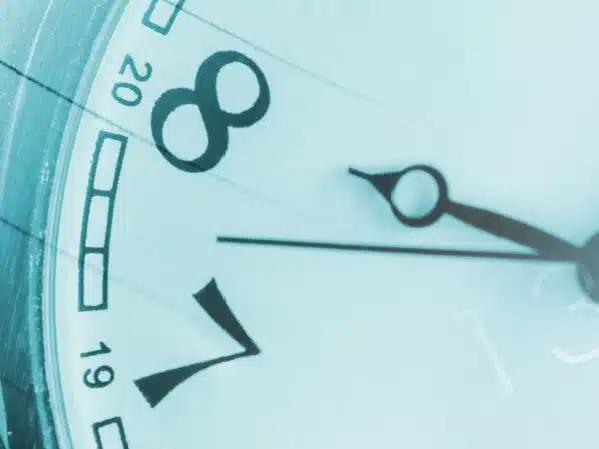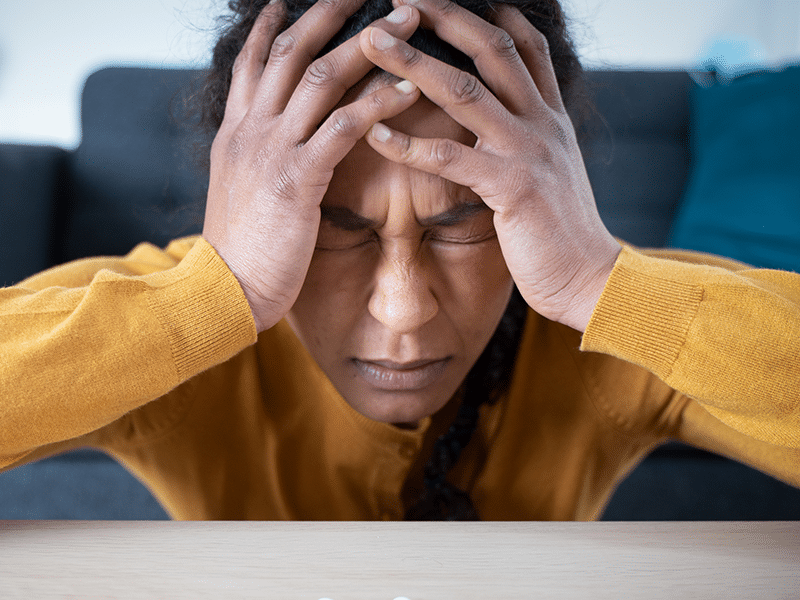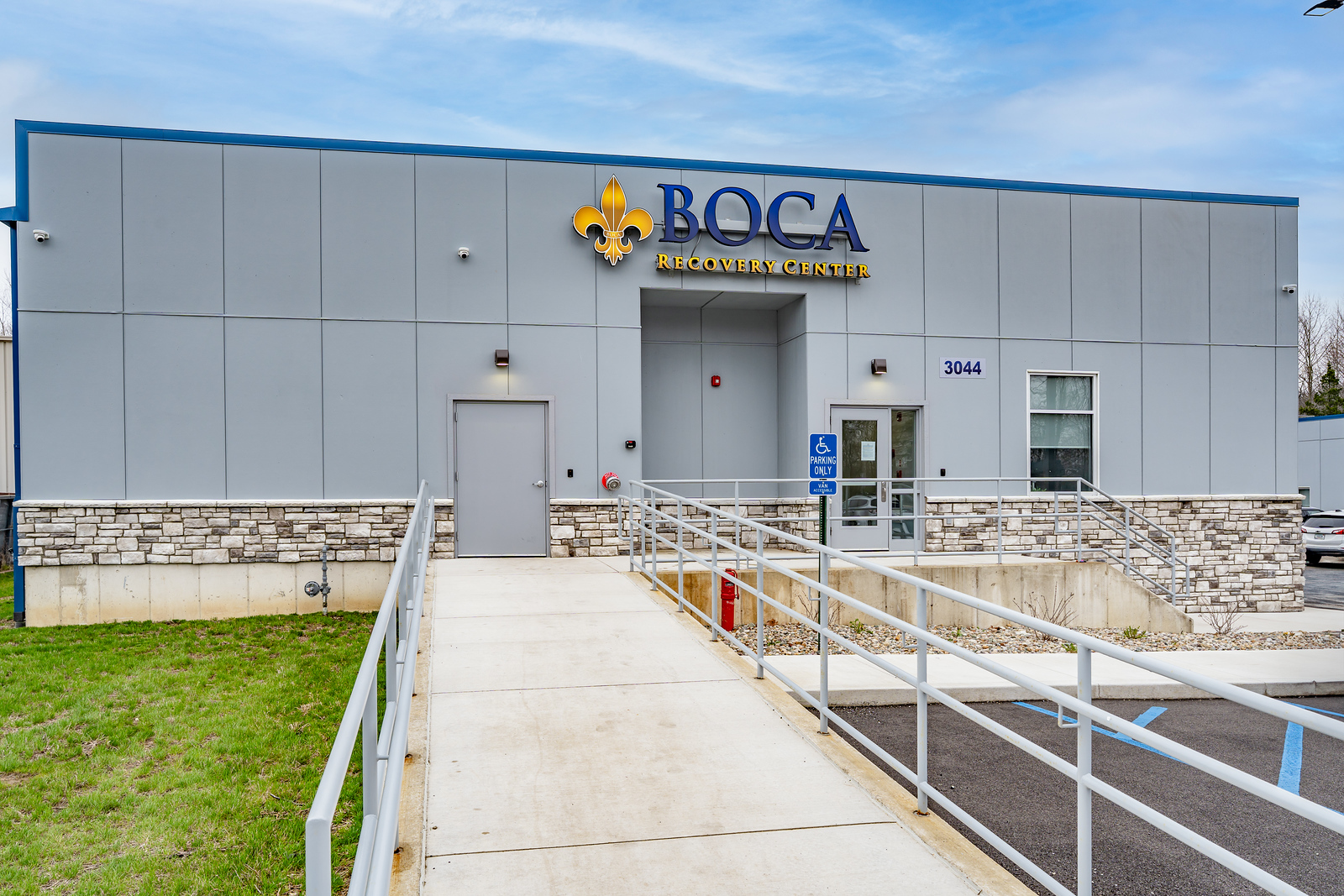Halcion, the brand name for the medication triazolam, is a prescription medication used as a short-term insomnia treatment. It’s the most commonly prescribed sleeping pill in the US, with 7.2 million prescriptions written each year. It has valid medical uses but it also has its dangers, from a potential for addiction to risky interactions with other medications, drugs, and alcohol. Understanding how Halcion is used and how to prevent those risks can allow you to get the sleep you need in a safe and predictable way.
What Is Halcion?
Halcion is the brand-name version of the drug triazolam. This benzodiazepine drug slows brain activity and helps a person sleep. To be more specific, it increases a certain neurotransmitter in your brain called GABA, and that GABA slows your nervous system and helps you relax. Halcion is primarily used as a short-term treatment for insomnia. In fact, the US FDA has approved the drug for no longer than 10 days of use.
Benzodiazepines are generally considered to have at least moderate abuse and addiction potential. That’s one reason Halcion is only prescribed for short periods. This method can reduce the risk of abuse and the chances that a person will become physically dependent on their medication.
How Halcion is Used
Halcion is FDA-approved as a short-term insomnia treatment. No other use for the medication is listed within FDA paperwork.
Halcion is one of several benzodiazepine medications. Other versions, like Valium, can be used for anxiety and restless muscles. Halcion is different. Its only use is short-term insomnia. It’s typically prescribed to only be used for 7 to 10 days, so it might be prescribed if you’re having a severe insomnia episode, for example.
According to the manufacturer Pfizer, the typical dose of Halcion is 0.25 mg. Some people might only need a half-dose of 0.125 mg. The maximum daily dosage is 0.5 mg, and this is usually only prescribed if a patient doesn’t respond to the standard dose.
Keep in mind that this is a medication that has a substantial effect on your body and has potentially serious risks if it’s misused, so Halcion is only safe to take if it’s prescribed by your doctor and you should take it exactly as prescribed.


Benzodiazepines Side Effects
Side Effects: Halcion’s Effects on the Body
Part of the reason doctors prescribe Halcion for short-term purposes is because the drug causes unpleasant side effects, even when it’s used as directed. Halcion side effects can be split into short-term and long-term versions.
Short-Term Effects
Halcion can stay in your system for only a short time. The side effects you can experience during this period include the following:
Dizziness
Tingling of the skin
Tiredness
Headaches
Lightheadedness
Nausea
Anxiety
Problems with coordination
Vomiting
Long-Term Effects
If taken for long periods, Halcion can cause physical dependence. The person will experience unpleasant physical symptoms (withdrawal) if they stop or reduce their dose.
Other long-term effects of Halcion use can include:
Tolerance, meaning it takes a higher dose to produce the same effects
Dependence on Halcion so that your body doesn’t function as well without the drug in its system
Higher risk for a Halcion overdose
Rebound insomnia so that you can’t sleep even when taking the drug
Potential for Misuse and Dependency
Like all benzodiazepines, Halcion is addictive. Take too much, or use the drug for too long, and an addiction can develop. In fact, misuse accounts for about 17% of all benzodiazepine use.
17%
The percentage of benzodiazepine use that is misuse.
Benzodiazepines work by promoting the binding of an acid called gamma-aminobutyric acid, or GABA, to a neurotransmitter in the brain. Activity slows and neurotransmitters like dopamine are released. The calming, sedating effect can be strong, leading to a sedative high if the drug is abused.
In addition to causing a high that some people chase, Halcion can create a physical dependence. This means that your body gets used to functioning the way it does when it has Halcion so when you stop taking the drug, you have withdrawal symptoms. With this dependency, Halcion withdrawal symptoms can include:
Anxiety
Insomnia
Unpleasant feelings
Abdominal cramping
Vomiting
Sweating
Shaking
Convulsions
A severe withdrawal episode can be life-threatening. No one should quit taking Halcion without talking to a doctor first.
The risk for abuse and dependency is why Halcion is only prescribed for short term use and why it’s classified as a Schedule IV controlled substance in the US.
Signs of Halcion Misuse
Some of the most common signs and symptoms of problematic benzodiazepine use, which may signal an addiction, include the following:
Drowsiness, confusion, and concentration problems
Unsteady walking
Slurred speech
Dizziness
Memory problems
Slow breathing
Taking higher doses than instructed by a doctor
Taking Halcion more often than prescribed
Using Halcion for an extended period
Using it without a prescription
Combining Halcion with other substances, such as alcohol
Continuing to take Halcion, even when bad things happen
Changes in mood or behavior
Feeling out of control of drug use
Obsessively focusing on Halcion and how to obtain and take more
Ignoring responsibilities at school or work
Doctor shopping or trying to get multiple prescriptions
Stealing Halcion
Trying to stop using Halcion unsuccessfully
Physical dependence
Talk to your doctor if you believe you have become dependent on Halcion or any other medication. Do not stop taking the drug suddenly on your own. Your doctor will be able to slowly taper you off the medication safely or they can refer you to other professionals who can help.
Dangers of Mixing Halcion with Other Substances
Like any other medication, there are certain substances that you shouldn’t have in your system when you take Halcion. It can interact poorly with many types of legal and illegal intoxicating substances as well as some other prescription medications and supplements. Some of the most prominent substances to avoid taking with Halcion are alcohol, opioids, and anything else that slows your central nervous system.
Mixing Halcion and Alcohol
Both alcohol and Halcion are central nervous system (CNS) depressants, which means that they slow down the core functions of your body like your breathing. The problem is that if you take them both at the same time, the combined effect can slow your CNS too much and become dangerous. You could become so severely sedated that you aren’t able to function safely, or in severe cases, your CNS can slow so much that it causes coma or death.
Mixing Halcion with Opioids
Like alcohol, opioids are CNS depressants, so they can slow your body’s essential functions excessively when you take too much of them or when you mix them with Halcion. This could increase your risk for an opioid overdose or it can have similar risks to mixing Halcion with alcohol: dangerously slowing your breathing.
Mixing Halcion with Other CNS Depressants
Alcohol and opioids are dangerous to mix with Halcion because they depress your central nervous system, so you also shouldn’t mix Halcion with any other medications, substances, or supplements that are CNS depressants.
What Can Happen if You Mix Halcion with Other Substances?
Two of the most significant concerns with mixing benzodiazepines with CNS depressants are enhancing respiratory depression and sedation. Respiratory depression especially has the potential to be life-threatening. Mixing Halcion with opioids or other drugs that also cause respiratory depression can cause breathing to weaken to the point where a person can no longer draw in enough oxygen to support their body’s needs.
Meanwhile, excessive sedation can cause a number of issues, including an inability to remain awake and collapsing at dangerous, unpredictable times. This can easily result in serious injuries to oneself and potentially others depending on the circumstances, such as if on stairs or driving or operating other heavy machinery.
Recognizing Signs of Dangerous Halcion Interactions
A Halcion overdose or a dangerous drug interaction between Halcion and other CNS depressants can have signs such as:
Falling unconscious or other changes in consciousness
Changes to your patterns and rhythms of speech, such as slurred speech
Difficulty breathing
Loss of coordination
Hallucinations
Irregular breathing, fast or slow breaths, or shallow breathing
Feeling weak or extremely fatigued
Mood or mental changes
Pain or weakness in the muscles
Nightmares
Pale or blue lips, fingernails, or skin
Extreme drowsiness
Shakiness or being unsteady on your feet
Trouble sleeping
Trembling or other problems with muscle control or coordination
Unusual excitement, nervousness, restlessness, or irritability
If any of these signs appear, seek medical attention immediately.
Guidelines for Safely Using Triazolam
Halcion can be a tremendous medication for improving your health and quality of life if you’re suffering from severe insomnia, but only if it’s used safely and properly. Keep these safety tips in mind:
Follow Prescription Instructions Exactly
Follow your prescription’s instructions to the letter. You’ll have instructions for how much to take and when in the day to take it, and potentially other instructions about when to avoid taking it, whether or not you should have eaten when you take it, and so on. All of these instructions are designed for you and your particular needs, so follow them closely for your safety.
Avoid Alcohol and Sedatives
Avoid any sedatives including alcohol and prescription pain medication when you take Halcion unless your prescriber specifically instructs you otherwise. These can have dangerous interactions.
Don’t Adjust Dose Yourself
Don’t adjust your dosage without medical consultation. If you find that your prescribed dosage seems too strong or if it’s not having the desired effect, contact your doctor to discuss dosage changes instead of making your own decision. Increasing the dosage without medical guidance can make your breathing dangerously slow or cause other serious side effects, and decreasing the dosage on your own can lead to risky withdrawal symptoms.
The ultimate rule of thumb is to take your triazolam exactly as prescribed every time.
Treatment Options for Halcion Addiction
If you develop or suspect an addiction to triazolam, there are professionals who can help you step by step to overcome the addiction. The appropriate treatment plan for addiction to Halcion or any other benzodiazepine should be customized to a person’s individual needs, but it usually involves the following components.
Supervised Taper
During a supervised taper, the Halcion dosage is slowly reduced. This method can prevent severe withdrawal symptoms and make quitting easier.
A doctor should always manage this process. Don’t attempt to taper on your own without medical supervision.
Medical Detox
While some people can work with their doctors on a supervised taper, others cannot. You may be tempted to abuse your Halcion or take very large doses on a bad day. A medical detox program may be a better option.
In medical detox, your team can help you move through a supervised taper in an inpatient facility or in a closely monitored outpatient program. And they can offer other medications and therapies to help you with symptoms. Their care and supervision can ensure you don’t relapse before the detox process is complete and that you stay safe from serious withdrawal complications.
Remember that benzodiazepine withdrawal can be fatal. A medical detox program or supervised taper are the safest ways to get sober.
Rehabilitation
After detox, you’ll be sober. A rehabilitation program can help you maintain it. Choose from either inpatient programs (where you live in the facility) or outpatient versions (where you live at home). In many cases, you might start in an inpatient rehab and then transition to lower and lower levels of support through outpatient programs as your recovery progresses.
Many addiction treatment programs incorporate various other therapies into their care plans. You’ll have a care manager or supervising doctor who can manage your overall treatment plan, regularly assessing its efficacy and your progress. If a particular treatment isn’t working for you, they can pivot to another choice.
Behavioral Therapy
Any addiction treatment plan will also involve counseling. Most programs will at least involve cognitive behavioral therapy (CBT), where one works with a mental health professional to better understand what draws them to think about drugs and drug abuse. Then, they work to restructure how they think to better control their drug use.
The goal is to avoid thinking about drugs when possible and avoid abusing drugs even if triggering thoughts occur.
Enjoying the Benefits of Halcion Without Dependence or Complications
Triazolam has its risks like any benzodiazepine and so many other medications, but when it’s used properly, it can be a very safe and effective way to treat insomnia and get the restorative rest you need. The key is following safe guidelines, working with a doctor who knows you and your needs and risk factors, and using your medication exactly as prescribed.using drugs even if triggering thoughts occur.
Frequently Asked Questions About Halcion Addiction & Abuse
We’ve compiled some of the most frequently asked questions about Halcion abuse.
Halcion is prescribed as a short-term treatment for insomnia.
Halcion stays in your system for about 24 hours. You may only feel its effects for about eight hours.
Halcion isn’t considered safe during pregnancy. If you’re using this drug while pregnant, talk to your doctor about what to do next.
Halcion and Xanax are both benzodiazepine medications. Halcion is generally more potent and used for insomnia. Xanax is weaker and is used to treat anxiety disorders.
Yes. Halcion is a prescription medication in the benzodiazepine class.
- Halcion. U.S. Food and Drug Administration. Published September 2016. Accessed June 29, 2023.
- The advantages of oral triazolam sedation. University of Washington. Accessed June 29, 2023.
- Votaw V, Geyer R, Rieselbach M, McHugh R. The epidemiology of benzodiazepine misuse: A systematic review. https://doi.org/10.1016/j.drugalcdep.2019.02.033
- Rush, C., Baker, R. & Wright, K. Acute behavioral effects and abuse potential of trazodone, zolpidem and triazolam in humans. https://doi.org/10.1007/s002130050997












